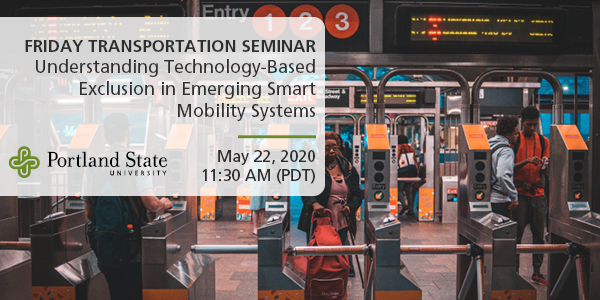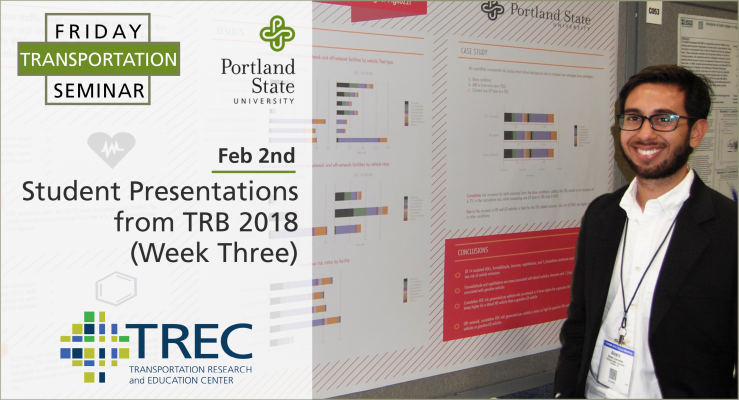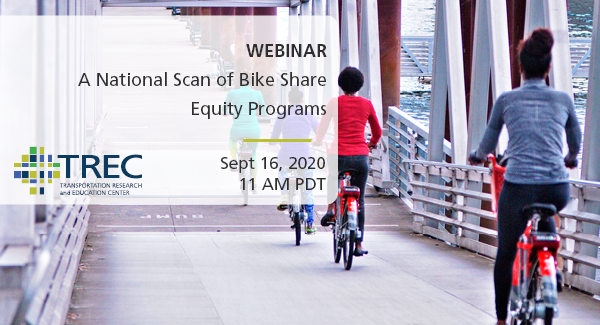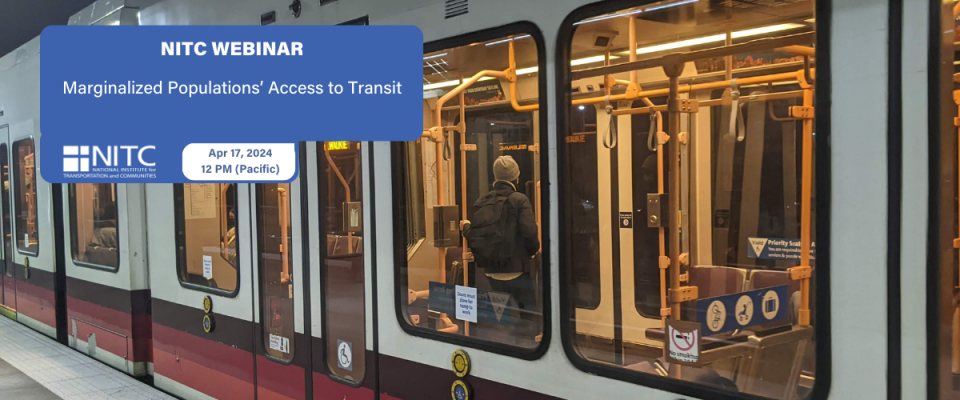We are committed to making decisions that promote the success and well-being of our campus community. Like an increasing number of universities nationwide, Portland State is taking steps to respond to the global pandemic. Until further notice, all live events hosted by TREC will be online only.
Friday Transportation Seminars at Portland State University have been a tradition since 2000. You can join us online at 11:30 AM.
PRESENTATION ARCHIVE
THE TOPIC
As transit agencies modernize their fare payment systems, opportunities to pay with cash are reduced. This speeds boarding and lowers the cost of operations while also creating new sources of ridership data. Arguably, service is improved for riders as well as payment systems could work across modes,...
Read more



